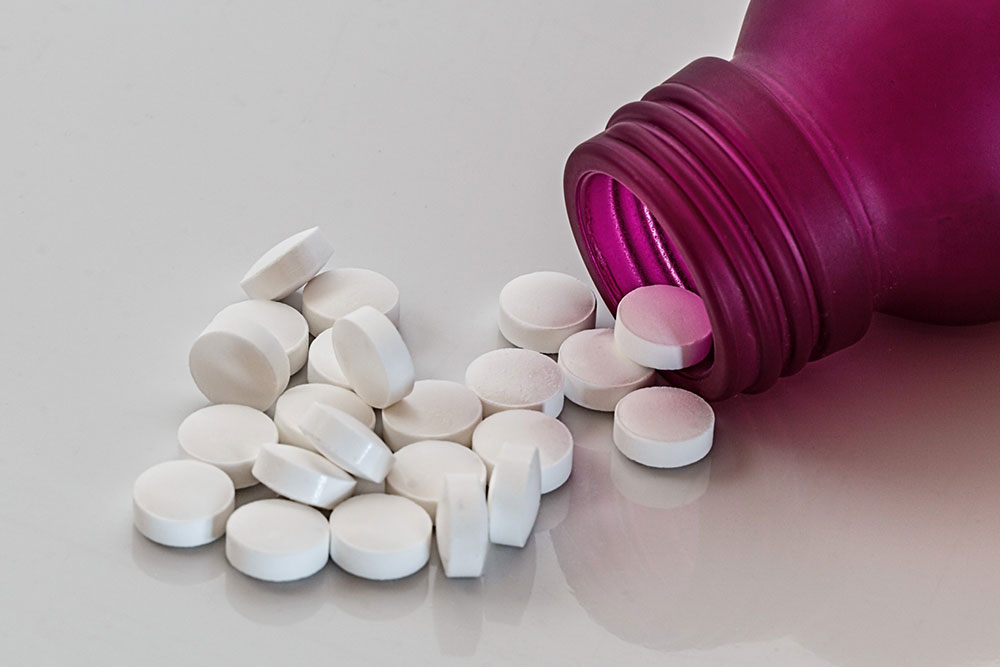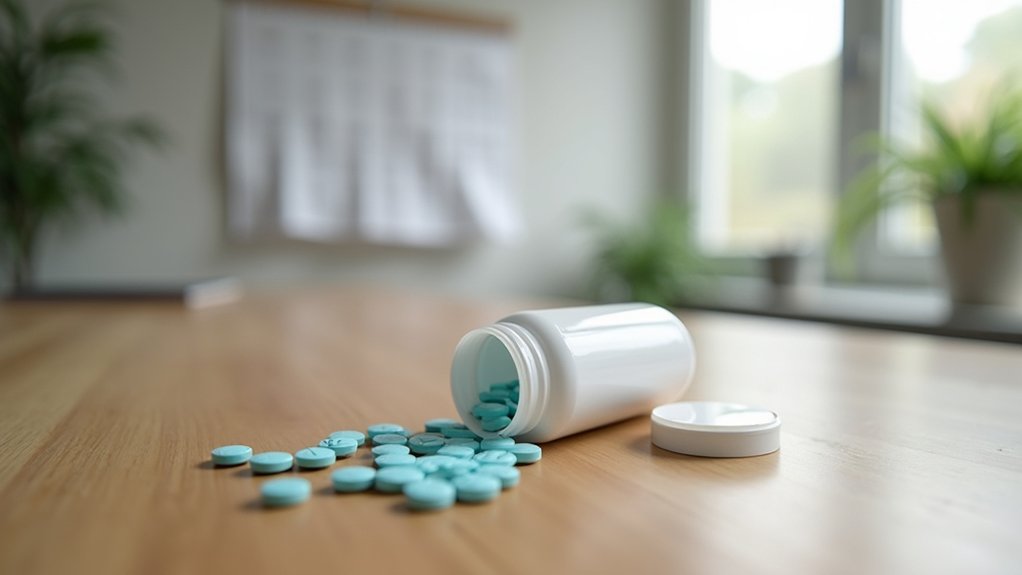How to Stop Self-Medicating and Cope Effectively
Self-medication is a practice in which individuals use substances or activities to cope with issues such as stress, pain, or emotional difficulties. While it may seem like a temporary solution, self-medication with drugs or alcohol can lead to dependency, addiction, and even co-occurring disorders. It’s important to know what self-medication is, why people engage in it, the risks it poses, and effective strategies for putting an end to this behavior.
What Is Self-Medication?
Self-medication refers to the act of using substances or engaging in certain activities to alleviate symptoms or improve mental well-being without proper medical guidance. It usually involves taking matters into one’s own hands and bypassing healthcare professionals, which can have serious consequences.
Self-medication can take various forms, such as using over-the-counter medications, herbal remedies, or even alcohol and recreational drugs to manage physical or psychological discomfort. While it may provide temporary relief, it often masks underlying issues that require professional evaluation and treatment. Additionally, self-medication can lead to drug interactions, adverse effects, and the development of substance use disorders.
How to Stop Self-Medicating

Overcoming self-medication requires a personalized approach tailored to the individual’s specific needs. Here are some general strategies that may be helpful:
- Recognize the underlying issues and seek professional guidance
- Engage in therapy or counseling to address the root causes of self-medication
- Build a strong support system
- Develop healthier coping mechanisms
- Avoid triggers and high-risk environments
- Practice self-care and maintain a healthy lifestyle
It’s important to remember that overcoming self-medication is a journey that requires patience, persistence, and professional assistance.
How to Help a Loved One Who is Self-Medicating
If you suspect that a loved one is self-medicating, it is important to approach the situation with empathy and understanding. Here are some steps you can take to help:
- Address the issue calmly and express concern
- Encourage open communication
- Suggest seeking professional help
- Offer support and involvement in their recovery journey
- Assist in identifying healthier coping strategies
Why Do People Self-Medicate?
There can be several reasons why individuals turn to self-medication. Some may feel reluctant to seek help due to stigmatization or fear of judgment. Others may find it more convenient and cost-effective to rely on self-treatment options. Additionally, certain individuals may lack awareness about the potential risks and dangers associated with self-medication.
Moreover, self-medication can also be a result of limited access to healthcare services, especially in rural or underserved areas. In such cases, individuals may resort to self-medication as a temporary solution to alleviate their symptoms or manage chronic conditions, including those related to mental health disorders. Societal factors (such as cultural beliefs and norms) can influence an individual’s decision to self-medicate. This cultural influence can shape an individual’s perception of healthcare and lead them to self-medicate without considering potential consequences.
How Self-Medicating Leads to Dependency and Addiction
What may start as an occasional or temporary use of substances can quickly develop into excessive reliance, leading to physical dependence and addiction. Substance abuse alters brain chemistry, making individuals crave more of the substance to achieve the desired effect. Over time, it becomes increasingly difficult to quit without experiencing withdrawal symptoms.
Furthermore, self-medicating can mask underlying issues, which makes it challenging to address the root causes of emotional distress or mood disorders. This can perpetuate a vicious cycle where individuals continuously resort to self-medication without seeking healthier alternatives.
It is important to recognize that self-medication often stems from a desire to cope with stress, trauma, or unresolved psychological issues. Individuals may turn to substances as a way to numb emotional pain or temporarily escape from reality. However, this temporary relief can quickly spiral into a harmful dependency, as the brain begins to associate the substance with a sense of comfort or relief.
Moreover, the societal stigma surrounding mental health can also contribute to the cycle of self-medication. Many individuals feel ashamed or embarrassed by having emotional struggles, which can lead them to secretly self-medicate as a way to cope. This isolation can further exacerbate feelings of loneliness and hopelessness, fueling the cycle of addiction.
Signs of Types of Self-Medication

Recognizing the signs of addiction via self-medication is crucial for identifying if someone is engaging in this behavior. Some common signs include:
- Increased substance use
- Using substances to cope during times of stress or emotional difficulties
- Persistent feelings of guilt or secrecy regarding substance use
- Substance use (such as drinking alcohol) when experiencing symptoms of a mental illness
- Neglecting responsibilities and relationships due to substance use
- Failed attempts to quit or cut back on substance use, even if it makes symptoms worse
It is important to note that self-medication can take various forms beyond substance abuse. Some individuals may engage in excessive shopping, gambling, or even overeating as a way to self-medicate their underlying issues. These behaviors can also serve as distractions from emotional pain or trauma, providing temporary relief but ultimately exacerbating the root problems (or mental illness symptoms that may cause future problems).
Self-medication is often a manifestation of deeper psychological issues, such as depression, anxiety, or unresolved trauma. Individuals may turn to self-medication as a way to numb their feelings or escape from distressing thoughts. This coping mechanism, while offering temporary relief, can lead to a cycle of dependency and further exacerbate mental health concerns.
Types of Self-Medication
Self-medication can manifest in various forms, depending on the substances or activities used. Some common types of self-medicating include:
- Abuse of alcohol or drugs
- Overeating or binge eating
- Excessive exercise
- Gambling
- Compulsive shopping
- Engaging in risky sexual behaviors
- Compulsive dangerous behavior
Abuse of drugs or alcohol is a prevalent form of self-medication. This can lead to addiction and exacerbate underlying issues if left untreated. Overeating or binge eating is another common way individuals self-medicate, because it uses food as a source of comfort or distraction from negative feelings. This behavior can have detrimental effects on physical health and contribute to the development of eating disorders.
Excessive exercise is also often used as a form of self-medication to manage stress or anxiety. While regular physical activity is beneficial for overall well-being, compulsive or extreme exercise can lead to physical injuries and mental burnout. Gambling is another outlet for self-medication, providing a temporary escape from reality and a rush of adrenaline. However, it can result in financial problems and addiction if not controlled. Compulsive shopping is a behavior where individuals seek temporary relief by purchasing items they may not need, leading to financial strain and emotional emptiness.
All of these behaviors can cause mental health issues and can impact daily life if not addressed. It’s important to seek professional help if self-medicating tendencies are starting to have negative consequences. It’s not fun to deal with the uncomfortable feelings of life. But self-medicating in a negative way can cause discord among friends, family members, and one’s community at large.
Risks of Self-Medication

While self-medication may provide relief or distraction, it also carries significant risks. These may include:
- Physical health complications
- Tolerance and dependence on substances (or activities)
- Development of addiction to drugs or alcohol
- Mental health deterioration
- Financial difficulties
- Damage to relationships and social isolation
One of the primary concerns with self-medication is the potential for misdiagnosis. Without the guidance of a healthcare professional, individuals may incorrectly identify their symptoms or conditions, leading to inappropriate treatment. This can exacerbate the underlying issue or cause new complications to arise, ultimately prolonging the recovery process.
Self-medication can also mask the true severity of a health problem. By self-medicating to alleviate symptoms without addressing the root cause, individuals may delay seeking proper medical attention. This delay can result in the progression of a condition going unnoticed, leading to more advanced stages of illness that are harder to treat.
Co-Occurring Disorders and Self-Medication
Many individuals who engage in self-medication have underlying co-occurring disorders. Co-occurring disorders refer to the presence of both substance abuse or addiction and mental health disorders. Self-medication can exacerbate mental health symptoms or trigger the onset of new disorders, further complicating the individual’s well-being. This is partly why it’s important to undergo dual diagnosis treatment for addiction, so that people prone to self-medicating with drugs can learn healthy coping mechanisms that will address the heart of their condition.
Help is Available at Immersive Recovery

If you or a loved one is struggling with addiction or self-medication with addictive substances, seeking professional help is crucial. Immersive Recovery offers comprehensive treatment programs tailored to individual needs, providing a holistic approach to recovery. Our team of experts is dedicated to supporting individuals on their journey to a healthier and drug-free life. Reach out to us today to learn more about our services and begin the path to recovery.





